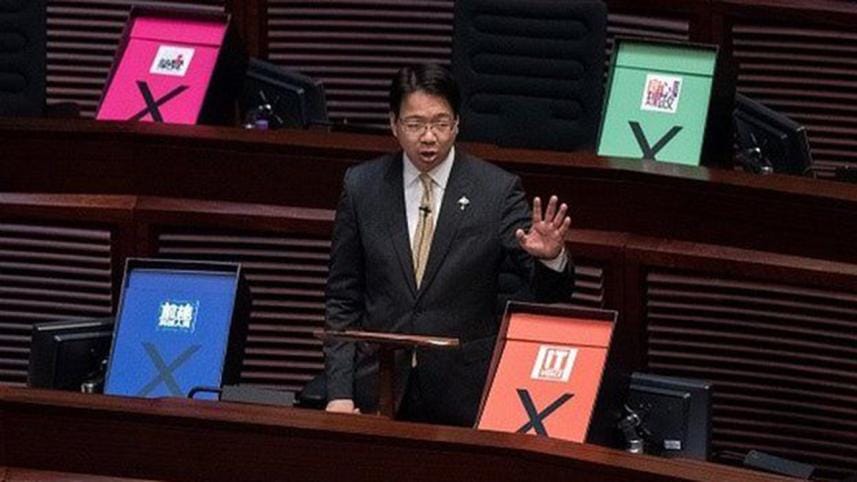HK lawmakers shun Beijing poll plan

Legislators in Hong Kong have rejected a controversial Beijing-backed election reform package that sparked mass protests last year.
The reforms were to give Hong Kong the right to vote for its leader for the first time in 2017.
But candidates would be vetted by a pro-Beijing committee that pro-democracy activists labeled "fake democracy".
China said its reforms would remain in force and were legal despite the vote.
Some in Hong Kong had hoped that if the proposals were rejected, China would be forced to offer more far-reaching reforms.
'Legal force unquestionable'
Beijing's decision on 31 August last year to control the candidates for the next leadership election sparked protests that drew crowds of more than 100,000 people to the streets.
Thursday's vote means Hong Kong's next chief executive could be selected, as before, by a 1,200-member committee currently stacked with Beijing loyalists.
Pro-Beijing lawmakers walked out of the council chamber moments before the vote was to take place.
The 37 lawmakers left voted and the motion was rejected with 28 opposing it and eight supporting it. It needed at least 47 votes to pass.
A statement from China's legislature released to Chinese state news agency Xinhua, said: "Although the universal suffrage motion was not passed, the direction towards universal suffrage and the legal principles laid down must continue to be upheld in future efforts."
It said the 31 August decision will "continue to serve as the constitutional ground for Hong Kong in the future" and "its legal force is unquestionable".
Hong Kong Chief Executive CY Leung said legislators had voted against the wishes of the majority of Hong Kong's people and he was "naturally disappointed".
Year of tense politics
Immediately ahead of the vote there was confusion, with some lawmakers unsure as to why others had walked out.
Pro-Beijing lawmakers later blamed miscommunication after their request for a 15-minute suspension was rejected by the Speaker.
The bill's defeat comes after what has been a tense year of political debate in the former British colony that was handed over to Beijing in 1997.
In September last year, activists began occupying major parts of the city and demanding universal suffrage. Protests paralysed the city centre after clashes between police and activists saw tear gas deployed.
After more than two months and with no concessions from CY Leung, the protest camps were ultimately dismantled by police.
 For all latest news, follow The Daily Star's Google News channel.
For all latest news, follow The Daily Star's Google News channel.
Comments